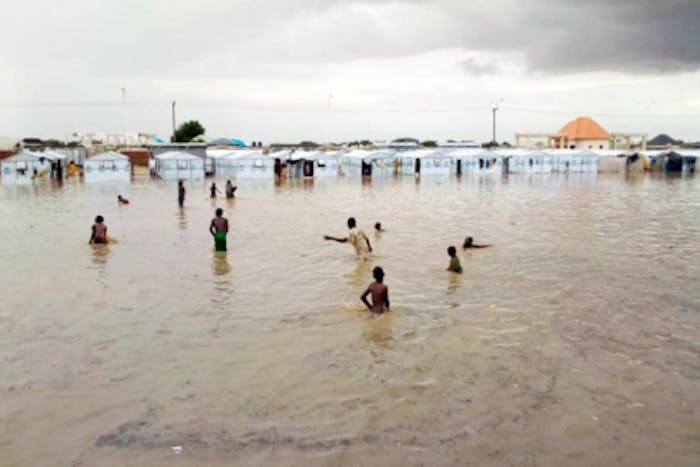Internally Displaced People in Nigeria
Nigeria is encountering serious development deficits and multi-dimensional poverty, limited governance systems, increased vulnerability to extreme events such as floods and droughts and competition over natural resources due to climate change.
This has led to undermined low security and exacerbated inequality. The complex setting escalated to mass displacement when North-East Nigeria witnessed an increase in violence perpetrated by non-State armed groups, most particularly by insurgent group Boko Haram, from 2014 onwards. Ever since, conflict has hampered Nigeria’s Northern States of Borno, Adamawa and Yobe, where nearly 3 million people now live in the most desperate (formal and informal) camps that serve as a refuge from violent attacks. With little livelihood opportunities and severe needs in terms of food security, protection and basic services, this crisis remains amongst the most severe protracted humanitarian crises in today's world.

 06 Clean Water and Sanitation
06 Clean Water and Sanitation
 13 Climate Action
13 Climate Action
 15 Life On Land
15 Life On Land
 03 Good Health and Well-being
03 Good Health and Well-being
 10 Reduced Inequalities
10 Reduced Inequalities
 11 Sustainable Cities and Communities
11 Sustainable Cities and Communities